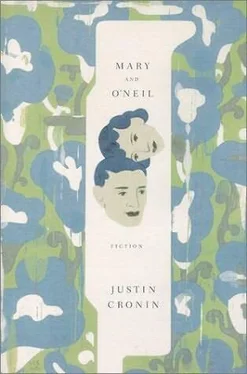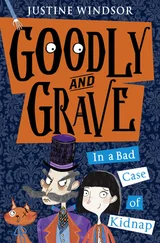“Seriously, Jack. How can this last?”
“I don’t know how it’s lasted this long.” He placed his bet on the table, and the dealer laid out fresh cards. “See? Twenty-one.” It was: a king and an ace, she saw. The dealer paid out.
She was too exhausted to press. “Come soon, then.”
Alone, she stepped from the casino, into the blazing light and building heat of the morning. The air smelled of flowers and the sea. The resort was like a compound, encircled by high fencing that made a U around one side of the bay and a beach of perfect white sand. The brochure had mentioned the casino almost in passing-it was just one more diversion, like the tennis courts and scuba lessons and limbo contests on the patio after dinner-and the two of them had joked about it. What kind of idiot would go to the Caribbean and fritter the time away playing cards in a dark room? But now the trip was half over, and they’d barely done anything else.
Their condo was empty, the beds rumpled and unmade. Searching from the windows, Kay found the boys down on the wide empty beach, and Mia, reading a book, her long, blond form stretched out in one of the lawn chairs that the resort staff put out each morning. Sam was nine, Noah six. She wondered if they felt neglected, but knew this wasn’t so: Sam wanted only to do as he wished, and Noah wanted nothing. It had been the hardest thing, to realize that she could only offer him comfort, that she would never really know him at all-that to be with Noah was, in some sense, to be alone.
She showered, dressed in a bathing suit-modest, matronly, one of those awful things with a skirt, but that was all they sold to women like her, women who were supposed to be older-and examined herself in the mirror. Thirty-six years old: her hair, a rich chestnut, had begun, here and there, to gray. She had never been a small woman, but now, after the boys, there was a wideness to her hips that was, she understood, a permanent rearrangement of the bones. And yet, looking at her reflection, she knew she was still, somehow, pretty. Her features were delicate and expressive; her legs were sturdy and lean, roped with muscle from the long walks she took now each day; her eyes and teeth were bright. The year of her illness-that awful year, they called it-had made her skin seem thinner somehow, almost translucent. Now, eight months later, her strength had returned, like wind filling a sail. The suit, with its high neckline, betrayed nothing.
The boys were making sandcastles, splashing in and out of the waves with buckets. They had no impulse to accumulate: all they built they destroyed at once, even Noah, who followed his brother’s lead in everything.
Sam took her hand and pulled. “Mia says we can go sailing if you say okay.”
“Did she?” The resort kept a fleet of rickety day-sailers on the beach. She tousled Sam’s hair, stiff with salt and sunshine. “After lunch, we’ll see,” she said.
“We want to go sailing now,” Sam declared. “Mia said she’ll take us.”
She knelt before the two of them. Their bodies were thin, absolutely without fat, and after three days in the sun, as brown as new pennies. Sam was tall for his age and hazel eyed, all knees and elbows and sharp angles, like his father; Noah, under a thatch of brown hair, had a wide, chunky face that on a different boy, one who smiled and laughed, would have been a constant barometer of his feelings. But his smiles, when they came, seemed like accidents. One eye, his left, did not look straight at her but just slightly away, a degree of misalignment that only someone close to him would notice. The condition was known as Brown’s syndrome, and was sometimes associated with autism. It was Noah’s eye, looking up at them from his cradle, that had first alerted them that something was wrong.
“Daddy’s made enough money to pay for the trip,” she told them. “What do you think of that?”
The littler boy wrinkled his brow and tipped his face to look at her. “Playing cards?”
“That’s right, playing cards. Grown-up cards. Mommy made some money too.”
“Can we buy a boat?” Sam asked.
“It’s not enough for that.”
“I found a jellyfish,” Noah announced. His world was a series of encounters with animals of all kinds; almost nothing else interested him. After a series of unhappy experiences with stray cats and wounded birds, they had tried to domesticate this compulsion with a menagerie of small pets: fish, turtles, a pair of lop-eared rabbits named Dopey and Doc. He seemed closer to these creatures than to any actual person, caring for them with complete devotion, and yet when they died, he seemed not to notice.
“Where was that?”
He pointed purposefully. “Over there. On the sand.”
“It was a dead jellyfish,” Sam said, scowling with boredom. “Big deal.”
Noah’s eyelids fell closed, like twin windowshades coming down. “Jellyfish. Any of various marine co-el-enter-ates of a soft, gelatinous structure, esp. one with an umbrellalike body and long trailing tentacles; medusa. Two. Inf. A person without strong resolve or stamina.” He pronounced the abbreviations exactly as he had seen them written in the dictionary. His face as he spoke was a perfect, emotionless blank.
“That’s wonderful, honey. Did Mia show that to you?”
The little boy frowned mysteriously. “It was dead,” he confirmed.
Up all night gambling, yet here she was, being a mother. For a while she helped Noah chase minnows in the shallows with his net, then moved a chair next to Mia’s, under the shade of a wide umbrella.
“How is the cards?”
Kay lay back in her chair. Just a few minutes with the boys had drained her; she knew right away that she would be asleep within moments. “We were doing pretty well when I left. I think we’re on a hot streak.” She sighed and turned to look at Mia. “You don’t mind? I know it wasn’t what we planned.”
Mia shrugged. From the wicker bag on the sand beside her chair she removed a hairbrush and, squinting into the light, stroked the underside of her long ponytail. “The boys are being good. Have the fun.”
“Well, their mother isn’t. Their mother is fried.”
Mia paused. “Fried?”
“Tired,” Kay explained, and closed her eyes.
She dreamed of being a girl, playing poker with her father in the kitchen, a dream that was also a memory: she had actually done this, years ago. One pair, two pair, three of a kind, straight: at the kitchen table, her matchsticks piled neatly before her, she calculated her bets according to a sheet of paper that listed the order of hands. It was notebook paper, folded and folded again, worn to the softness of chamois cloth from years of travel in her mother’s purse. Her parents played with friends; her mother was lucky, her father explained, but claimed to forget which hand was which. The light of the kitchen was winter light, cool and angular; Kay was eleven years old. Her father taught her to bluff, how to build the pot slowly when the cards were good, when to fold and be gone. Don’t fall in love with a hand, he warned her; even a good hand could lose. Wear a lucky color, but don’t count on it. Music played on the tinny speaker of the kitchen radio; she was wearing a nightgown, but was not cold, and her father was alive. He shuffled the cards to deal. Five-card draw, he said. Suicide kings and one-eyed jacks were wild. He showed her the cards, the jack with his averted gaze, the king with a sword in his head. Daddy? she said. Daddy, I married Jack. That’s good, he said. I know you did. I was there, remember? I’ve always liked Jack.
The light grew brighter and brighter and brighter still, the music louder and louder, and then she awoke to sunshine and heat, and remembered where she was. She had slept two hours; the boys and Mia were nowhere to be seen. Just a few hundred yards off the beach a cruise ship had sailed into view-deck after deck piled high above the water, an impossible vision, like a floating wedding cake. The grinding of the anchor, lowered on its chain, had awakened her, and something else: somewhere, a ragtime band was playing.
Читать дальше












